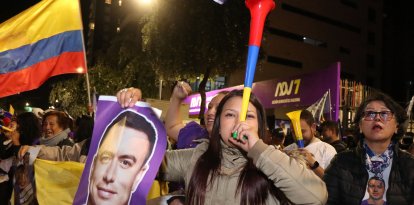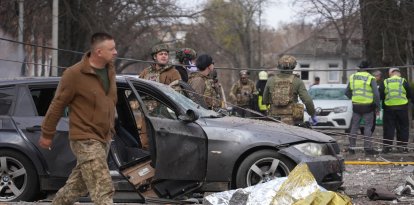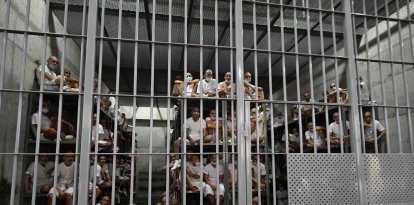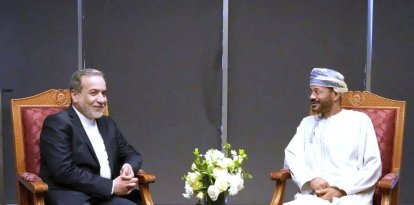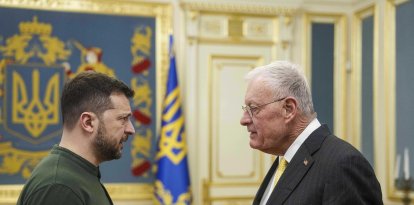Israeli media report that Netanyahu is preparing a truce agreement with Hezbollah
The negotiations, overseen by the U.S., include a withdrawal of Israeli troops and terrorists from both banks of the Litani River.
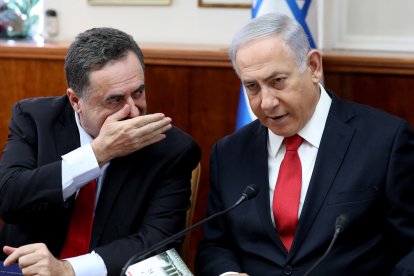
Benjamin Netanyahu and Israel Katz
The Israeli government has put a proposal for a ceasefire with Hezbollah on the table. This is what several Israeli media claim, citing sources who maintain that Benjamin Netanyahu is preparing the form in which he will present such an agreement to the public.
According to reports by Haaretz, Ynet and Kan TV, which were published throughout Sunday, the agreement Netanyahu is considering has the White House's approval. This news comes after Hezbollah launched one of its largest rocket salvoes against Israel over the weekend and the Israel Defense Forces (IDF) responded to those bombardments.
Israeli media cites government sources, both in Israel and in the United States and Lebanon. The State of Israel and the Lebanese Shiite terrorist group are at loggerheads again following the IDF ground invasion against southern Lebanon, preceded by months-long and escalating exchanges of fire with the Israeli operation against Hamas in the Gaza Strip.
In this latest stage of the conflict, Israel has eliminated the top leadership of Hezbollah, including the movement's leader for more than 30 years, Hassan Nasrallah.
Israeli press reports indicate that the approval of the proposal is not final and that several issues had yet to be resolved, but that Jerusalem had given its approval to a fundamental basis for the proposal. According to Ynet, this had been conveyed to Lebanon.
Hezbollah's new leader, Naim Qassem, stated last week that the terror group had reviewed the truce proposal and submitted a response, and that the ball was in Israel's court. Haaretz reported that the proposal would include three phases: a truce followed by Hezbollah's withdrawal of its forces north of the Litani River; an Israeli withdrawal from southern Lebanon; and, finally, Israeli-Lebanese negotiations on the demarcation of disputed border areas.
These areas in which both the IDF and Hezbollah militias operate are included in the areas that the United Nations called for demilitarization and in which it deployed a blue helmet international military mission, which has been unable to halt the escalation of war on both sides.
The United States will ensure compliance with the agreement
The White House, which has been calling for cease-fires between the parties to the conflict since its inception, would be charged with this task. Other countries such as France have tried to mediate without significant success in the same task.
According to reports, Washington has given permission to the Israeli government toresume hostilities and its operation in southern Lebanon.
The Israeli media account indicates that U.S. special envoy Amos Hochstein gave this week as the deadline for moving forward on the agreement. Otherwise, the U.S. would abandon its efforts and Israel and Hezbollah would have to wait for incoming President Donald Trump to take office in January before resuming dialogues.
RECOMMENDATION

